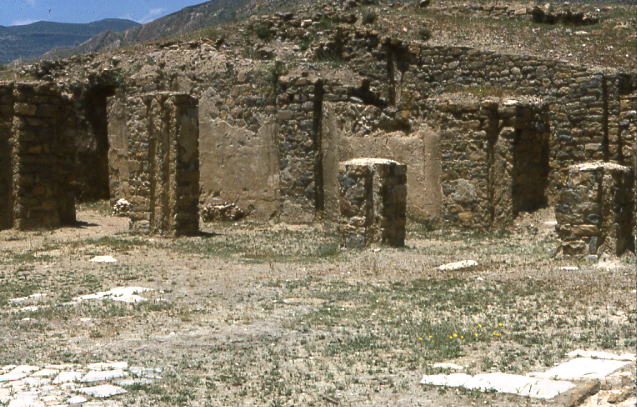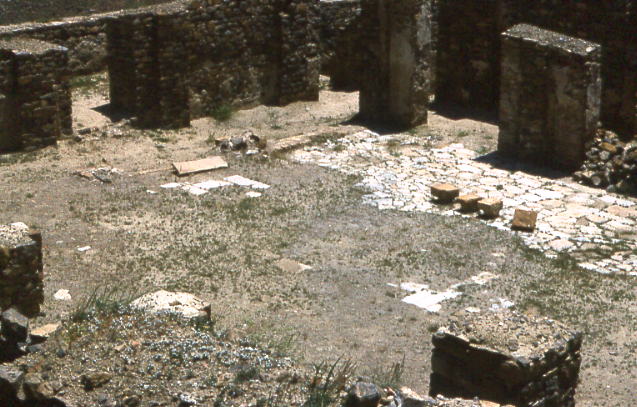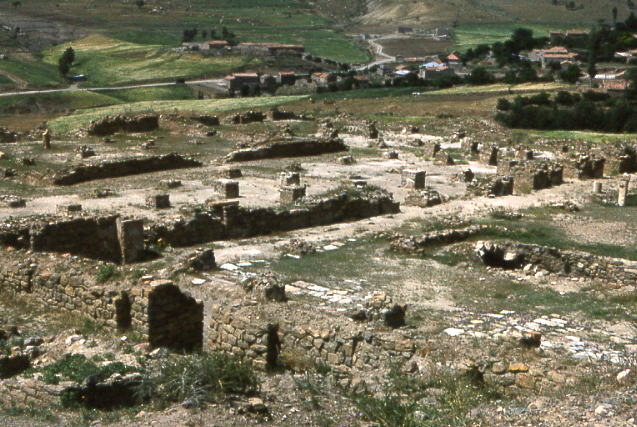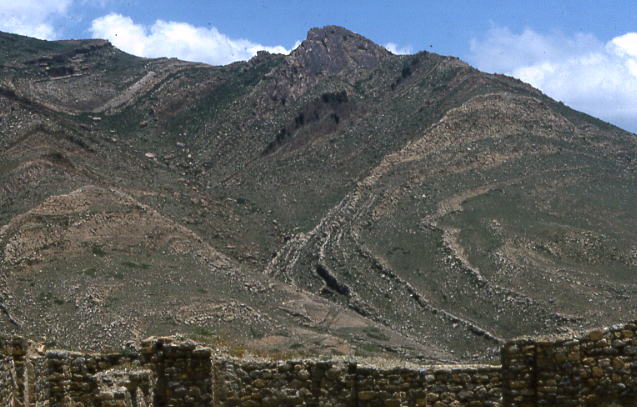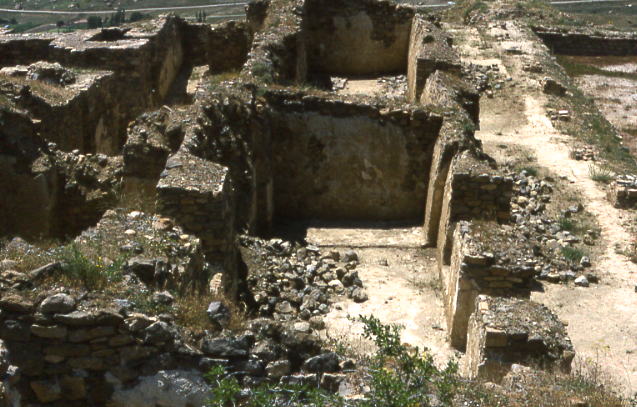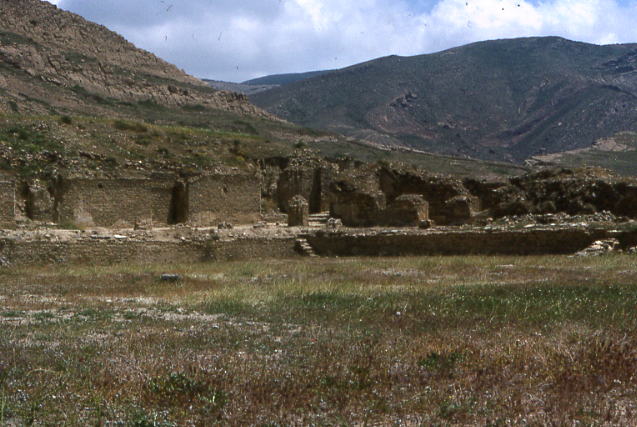Beni Hammad Fort, also called Al Qal'a of Beni Hammad is a fortified palatine city in Algeria. Now in ruins, in the 11th century, it served as the first capital of the Hammadid dynasty. It is located in the Hodna Mountains northeast of M'Sila, at an elevation of 1,418 meters, and receives abundant water from the surrounding mountains. Beni Hammad Fort is near the town of Maadid (aka Maadhid), about 225 km southeast of Algiers, in the Maghreb.
In 1980, it was inscribed as a World Heritage Site by UNESCO, and described as "an authentic picture of a fortified Muslim city".
The town includes a 7 km-long line of walls. Inside the walls are four residential complexes, and the largest mosque built in Algeria after that of Mansurah. It is similar to the Grand Mosque of Kairouan, with a tall minaret (20 m).
Excavations have brought to light numerous terracotta, jewels, coins and ceramics testifying to the high level of civilization under the Hammadid dynasty. Also among the artifacts discovered are several decorative fountains using the lion as a motif.
The remains of the emir's palace, known as Dal al-Bahr, include three separate residences separated by gardens and pavilions.




